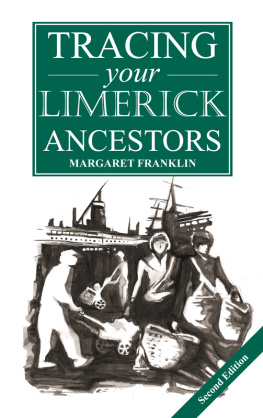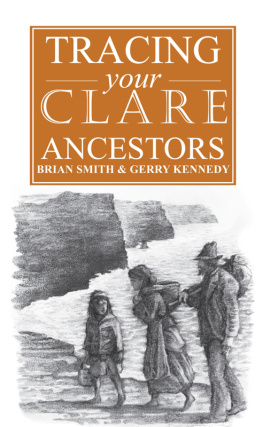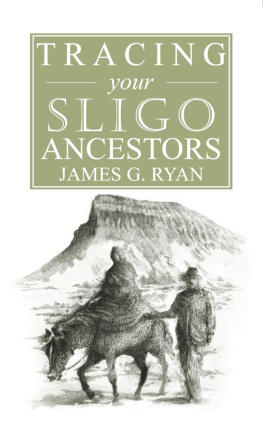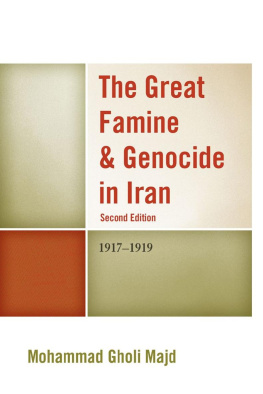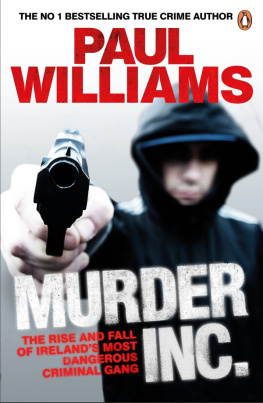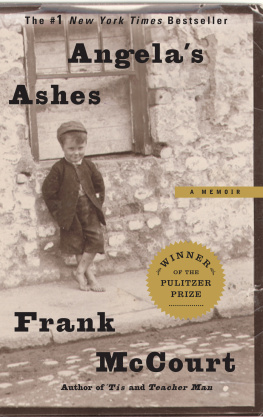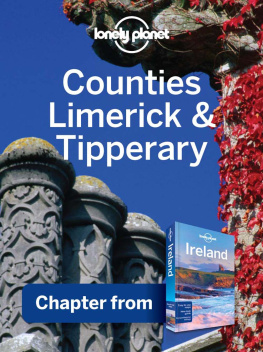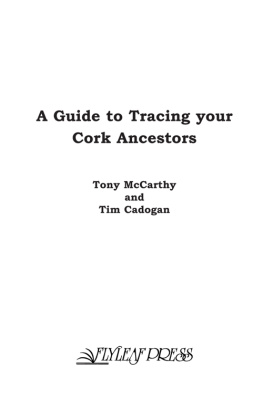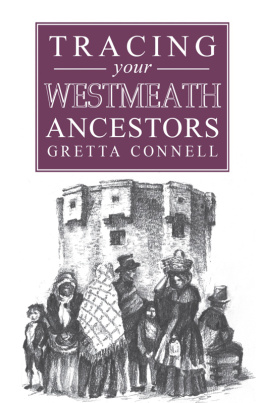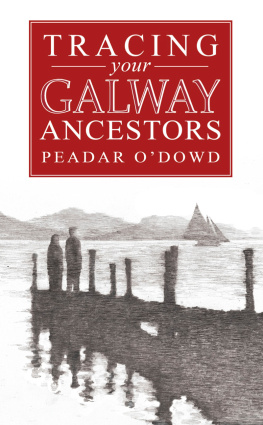A Guide to Tracing Your Limerick Ancestors
A Guide to
Tracing Your Limerick Ancestors
Margaret Franklin

First published in 2003
Second edition 2013
Flyleaf Press
4 Spencer Villas
Glenageary
Co. Dublin
Ireland
www.flyleaf.ie
2013 Flyleaf Press
British Library cataloguing in Publications Data available
ISBN 978-1-907990-06-9
All rights reserved. No part of this publication may be reproduced, stored in a retrieval system, or transmitted, in any form or by any means, electronic, mechanical photocopying, recording or otherwise without the prior permission of the copyright owner.
The information in this book is subject to change without notice.
Cover Illustration:
Eoin Ryan
www.eoinryanart.com
Layout:
Brian Smith/Emer Byrne
Dedication
To the memory of William Franklin, of Doon South who traced so many of my ancestors by the open fire side on many a dark winters night and to Johnny who encouraged me along the way.
To forget ones ancestors is to be a brook without a source,
a tree without a root
- Chinese proverb.
Acknowledgements
Peggy Barry, Ballyhoura Architectural Survey.
Ken Bergin, Special Collections Librarian, University of Limerick.
Tomas Bosek, Doon Community Office.
Samm Coade, National Library of Ireland.
Michael Cotter, Genealogist, Killiney, Co. Dublin.
Catriona Crowe, Limerick Genealogy Research Service.
Aileen Dillane, Newcastle West Library.
Tom Donovan, Editor Old Limerick Journal.
Noreen Ellerker, St. Marys Cathedral, Limerick.
Pat FitzGerald, Limerick County Council.
Eugene Griffin, Limerick County Council.
Ewelina Grzelinska, Office of Chief Herald, Genealogy Office.
Jacqui Hayes, Archivist Limerick City Archives service.
Brian Hodkinson, Limerick City Museum.
David Leahy, Limerick County Council.
Sean Liston, Croom Development Association.
Katy Lumsden, Office of Chief Herald, Genealogy Office.
Margaret McBride, Genealogist (for proofreading the first draft)
Mike Maguire, Fiona Ismael, Liam Dunne, Kevin Hayes, Siobhan Hickey and the staff of Limerick Public Library Service.
Noel Coilen, Cill Mocheallg, Contae Luimnigh.
Gregory OConnor and Michel Conaire, National Archives of Ireland.
Peg Prendeville, Glin library.
Fr. Tony Ryan, P.P. Doon.
Sharon Slater, Coordinator Limerickslife.com.
Tomas Toomey, Historian, Castletroy, Limerick.
Contents
Foreword
When the first edition of this book was published, Ireland was at the height of an economic boom. The consequential slump has followed and the country is now suffering from the excesses enjoyed by a small minority of greedy people. One lesson learned from the whole experience is that history does repeat itself and people learn very little from it.
In the early nineteenth century the Irish economy was thriving as agricultural prices were inflated by the demands for agricultural produce to feed the British army during the Napoleonic war. The economy suffered badly when peace in Europe dramatically decreased the demand for food. Just over thirty years later Ireland suffered its greatest calamity when the Great Famine left an indelible mark on the psyche of the people and on future generations. One fallout from this devastation was the collapse of the landlord and tenant system. The subsequent sale of bankrupt estates by the Encumbered Estates Commission has many parallels with the National Assets Management Agency (NAMA) of today.
The mass emigration from Ireland in the years following the Famine created a huge diaspora, mainly in Australia and America, but also in many other far-flung places. The growth of a large migrant population abroad and the appetite for information on the events of over a century and a half previously has led many descendants of these emigrants to explore their ancestry. However, tracing roots is no longer the preserve of exiles only. There are a number of reasons for the increased interest in genealogy in Ireland. Additional leisure time has allowed people an opportunity to trace their family history. The availability of new sources online and in libraries has also encouraged people to join the hunt for new information about their ancestors. The National Archives have added to the rich inventory of sources available to researchers by making the Tithe Applotment Books and the 1901 and 1911 census returns available free online.
Television shows such as Who do you think you are? have particularly heightened the awareness of matters genealogical for the general public. The search for ones relatives does not always end in the discovery of famous relatives. However, like romance, the thrill is more often in the pursuit than in the conclusion. One frustration and realisation that researchers will appreciate is that there is no end to tracing ancestors. There will always be a missing link or final piece of the jigsaw that remains to be sourced and in a way this is part of the fascination.
Limerick is unique in that it has many wonderful institutions that have led the field in uploading Internet records. Limerick City Library, Museum and Archive services have all contributed with a wealth of free online resources. Mike Maguire of the City Library Local Studies Department, has led the way by adding over a century of obituaries from the local newspapers to their online records. It is hoped that, with the amalgamation of the city and county library services, Limerick does not lose any of these marvellous assets. The joint third level campus of University of Limerick and Mary Immaculate College also added to the array of material waiting to be unravelled.
Over the past twenty years there has been a plethora of books on genealogy and guides to finding ancestors. So why is there a need for another book on tracing ancestors now? New information and sources are being announced and introduced almost on a daily basis. The vast array of information, which is now more freely available in institutions and the myriad of sources provided on the internet, are confusing even for the seasoned genealogist and even more so for the amateur or beginner. This guide will direct you through all the detailed references and maze of sources and hopefully lead you to the gem of a website or source that will add to your ever expanding family tree.

Tom Donovan,
Editor,
Old Limerick Journal.
Abbreviations Used
| b | baptism |
| C of I | Church of Ireland |
| d | death/died |
| EM | Diocese of Cashel and Emly |
| GO | Genealogical Office |
| GRO | General Registrars Office |
| IGRS | Irish Genealogical Research Society |
| IMC | Irish Manuscripts Commission |
| Ir. Anc. | Irish Ancestor |
| Ir. Gen. | Irish Genealogist |
| JCHAS | Journal of the Cork Historical and Archaeological Society |
| JRSAI | Journal of the Royal Society of Antiquaries of Ireland |
| LC | local custody |
| LCA | Limerick City Archives |
| LGDJ | Lough Gur and District Journal |
| LK | Diocese of Limerick |
| m. | marriage/married |
Next page
